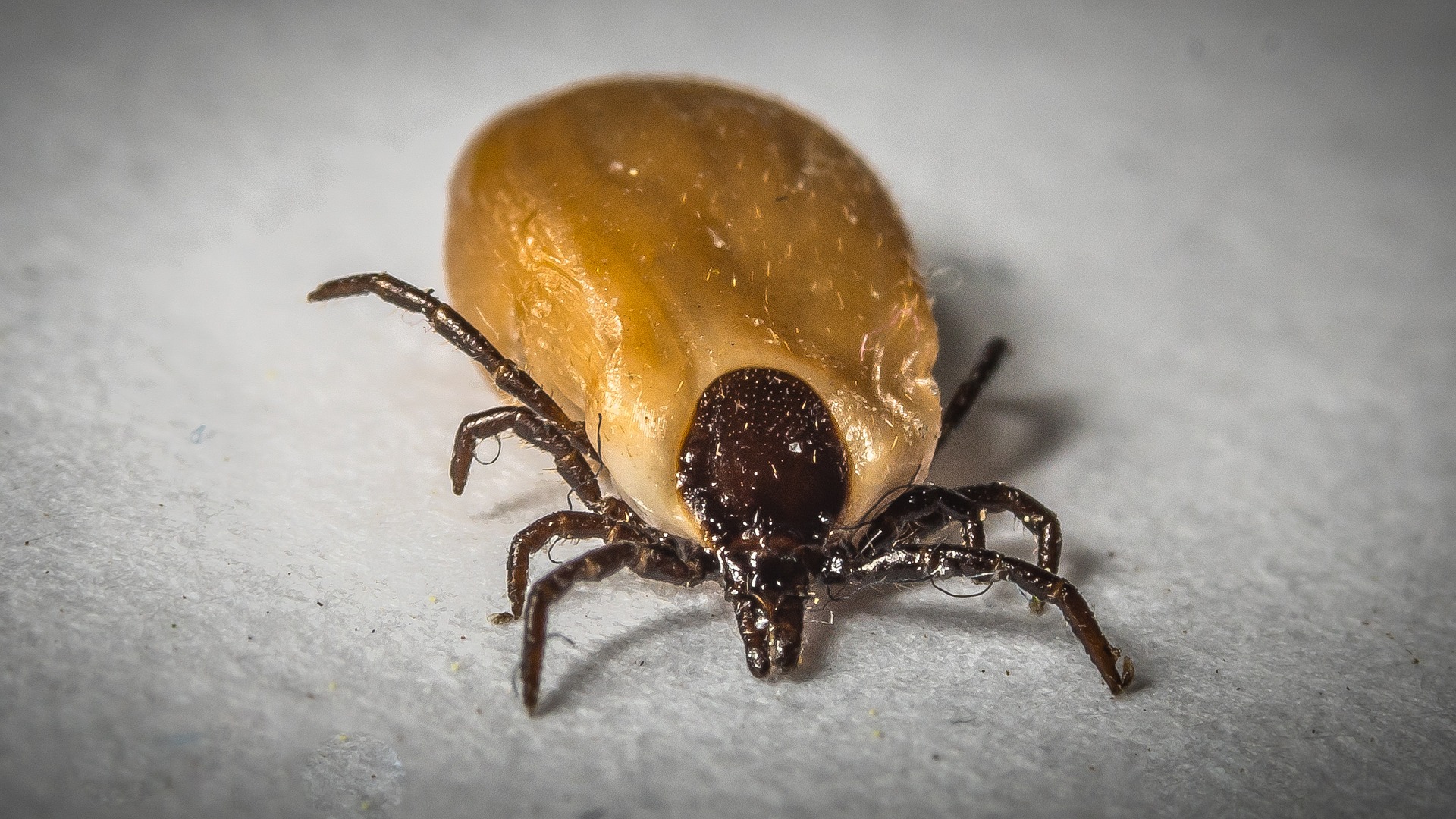
Ticks and mosquitoes, are among the most common carriers of diseases. The number of people affected by the diseases transmitted by insects in the Czech Republic is increasing every year, due to climate change. Some of the infections, including viral tick-borne meningoencephalitis, Lyme borreliosis, ehrlichiosis or babesiosis, are carried by every fourth tick. You can catch them repeatedly, because getting them once does not confer permanent immunity.
Pokud se na vás klíště přisaje, je ze všeho nejdůležitější ho co nejdříve – nejlépe do 12 hodin – odstranit. Sníží se tak riziko přenosu infekce a nebezpečí následných zdravotních komplikací.
If you notice a tick on your skin, remove it as soon as possible – preferably within 12 hours. This will reduce the risk of transmission of infection and the risk of subsequent health complications. The later you remove the tick, the dose of infection that the tick passes to the human body increases, which of course can affect subsequent clinical manifestations. Ticks can be carriers of the four diseases mentioned above. “I often meet patients who have two or even three diseases with a certain phase shift in a relatively short period of time,” says neurologist prof. MUDr. Martin Bojar, CSc., From Poliklinika to Národní.
Meningoencephalitis is not a cure
„I consider viral tick-borne meningoencephalitis to be the most serious of these tick-borne illnesses. There is no effective treatment for this form of infection, which is related to Dengue fever and the media-famous Zika infection. However, it can be effectively vaccinated against, notes Dr Bojar, adding:“ I personally advocate that pediatricians consider the benefits and risks of vaccination carefully, especially in families where the vaccination complications or serious allergies have already appeared.“
Tick-borne meningoencephalitis occurs in two stages. Initial symptoms often resemble the flu. Relief is temporary and is followed by varied symptoms, such as headaches, diminished responsiveness, behavioral disorders, paralysis of nerves. If the disease is suspected, hospitalization is warranted “The treatment is symptomatic and supportive, since there is no effective antibiotic Immunoglobulins can be administered intravenously in serious cases ”explains prof. Bojar.
Good time to vaccinate
„The best time to get vaccinated is before the ticks come – early spring. However, this year I recommend waiting with the vaccination in those patients who are at a higher risk of infection such as measles, ”says prof. Martin Bojar, neurologist from Policlinic at Národní. The vaccination is repeated after 5–10 years, but it always depends on specific circumstances. “I perform virological control in some patients, and if a sufficiently high level of antibodies is demonstrated, then the planned revaccination can be postponed. An important indicator is undoubtedly the current state of health and immunity of the individual,” notes Dr Bojar.
Tick-borne encephalitis
Personally, I consider vaccination against tick-borne meningoencephalitis to be a very rational approach, especially for high-risk populations and those who live in areas with an increased incidence of this neuroinfection or who are at risk,” says Dr Bojar, neurologist at Policlinic at Národní. Encephalitis is not transmissible from person to person. You can only get infected by being bitten with an infected tick or by tampering with a tick. But beware! Tick-borne goat, sheep and cows can also become infected with tick-borne encephalitis, so if you consume non-processed milk products from infected animals, you may also become infected with the infection. Carriers of infected ticks are also dogs and cats, who share the home” notes Dr. Bojar. Lyme Disease
If the tick has not yet absorbed a large volume of blood and is removed within 24 hours, the risk of infection is low. In about a half of those affected with borreliosis, a pale blanching circular skin rash develops. In the coming weeks, if antibiotics are not given, there may be manifestations of affections of other organs such as the nervous system, joints and muscles or circulatory system. Typically, specific al antibodies are tested for one or two months after the onset of cutaneous or other symptoms, as early in the disease they are often negative. preceded by ticks in approximately 50 percent of cases.
Early antibiotic treatment can significantly reduce the risk of developing complications at a later stage of the disease. However, due to immunological processes, symptoms can persist even after antibiotic treatment. Since the infection at this stage is no longer an active one, prolonging antibiotic treatment is not only inefficient but also dangerous, since the risk associated with long-term use of antibiotics or chemotherapeutics that disrupt intestinal bacteria and can lead to inflammation of the intestines and increase the risk of bacterial resistance to antibiotics. This fact is also confirmed by the neurologist MUDr. Martin Jan Stránský, M.D., FACP, from Poliklinika to Národní: “It is striking that doctors prescribe antibiotics for borreliosis differently – for a few days up to a month, sometimes longer. Yet no study has shown that more than 14 days of treatment has a greater effect on early Borrelia elimination.“
Ehrlichiosis, neoehrlichiosis and babesuiosis
It is very important that a person who has symptoms of tic-borne disease seek out an experienced specialist. For example, ehrlichiosis or recently described neoehrlichiosis can easily be confused with hematologic or autoimmune disease, and, in extreme cases, for a vascular event whose treatment is fundamentally different. All such neuroinfections – including malaria-like babesiosis – which is also transmitted by ticks, are treatable with antibiotics. Vaccinations have no effect.
Do you need vaccination?
You should consider vaccination if you have not been vaccinated in the last ten years or have low antibodies. You should be wary if you are fishing or mushrooming, hiking, playing golf, bathing or sunbathing at Czech and Moravian ponds, in river and lake valleys. However, gardening is also a risk, because if you have a garden, you care for composts, which are often an appealing source of food for small rodents. Higher incidence of tick-borne meningoencephalitis was confirmed in Benešov, Beroun, Plzeň, Rokycany, in southern Bohemia and northern Moravia. You can even encounter infected ticks in parks in Prague.
